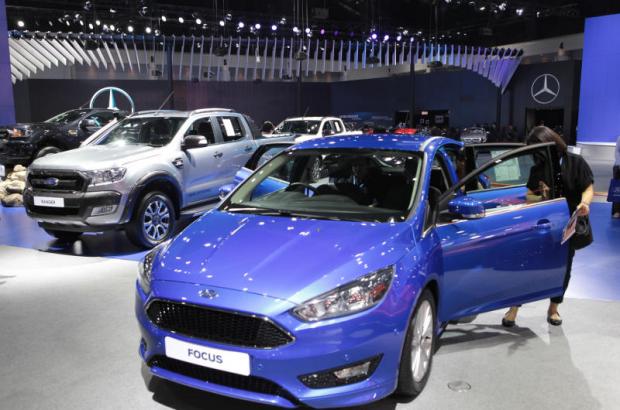
US carmaker Ford Motor Co expects to end the year with higher sales in the Asean market after posting sales growth in the first 10 months of this year, notably in Thailand, the Philippines and Vietnam.
Mark Kaufman, president of Ford Asean, said 2016 has been a challenging year for Ford in the region after the company decided to close operations in Indonesia by year-end.
The Michigan-based company announced in January that it would close down by the end of 2016 all operations in Japan and Indonesia, where the carmaker says it has no path to boost sales or turn a profit.
The exit by Ford is the latest example of a carmaker losing patience in struggling auto markets in parts of Asia dominated by Japanese manufacturers. General Motors last year closed down its factory in Indonesia, the largest car market in Southeast Asia.
In Asean, Ford sold a combined 103,975 units last year, up 3.3% from 2014.
Thailand accounted for the highest sales in the region at 36,465 vehicles last year, down 4.3% from a year earlier, but its market share edged up 0.3 points to 4.6%.
The Philippines came second, delivering 25,372 units, up 25%.
Vietnam was third with 20,740 units, up 48%, while Malaysia accounted for 12,130 units. Cambodia represented 1,266 units, followed by Myanmar (679), Laos (653) and Singapore (422).
Ford's retail sales in Indonesia fell to 6,103 vehicles last year, down 47.4%, with a market share of just 0.6%. It has 44 sales outlets there.
"Thailand still contributes the most sales in the region, with Ford's sales increasing 20.1% for the period from January to October to 32,109 vehicles," Mr Kaufman said.
"Meanwhile, the Philippines came second, but with strong sales growth of 40% to 27,463 units for the same period and Vietnam made for 23,527 vehicles, up 50% from last year."
The Thai-made Ford Ranger pickup is the dominant model in these three countries, followed by the Everest and EcoSport SUVs, which are also exported from Thailand, he said.
In Thailand, Ford expects 2016 to be the first year of sales growth after posting declines since 2013 -- boosted by recovering demand for the Ranger model.
The company now runs two plants in Rayong. The first is handled by AutoAlliance Thailand (AAT), a joint venture with Mazda. In 1997, the US carmaker allied with Mazda to operate the US$1.66-billion AAT facility in Rayong's Eastern Seaboard Industrial Estate. Ford accounts for half of AAT's annual production of 240,000 vehicles.
The second plant is run by Ford Thailand Manufacturing (FTM) in the same province, making passenger cars with a capacity of 180,000 units a year, including Ford's passenger cars: the Fiesta, Focus and EcoSport.
Ford last November announced a $186-million infusion for FTM to make the Ford Ranger pickup. The move is aimed at meeting demand for the popular model.
In a related development, Mr Kaufman said Ford last month started production of the Ford Ranger at its wholly owned FTM plant in Rayong. The Ranger was previously built at AAT, which will remain the vehicle's main Asia-Pacific production base.
The new facility will make 40,000 pickups a year at first, aiming to produce up to 80,000 annually in the future.